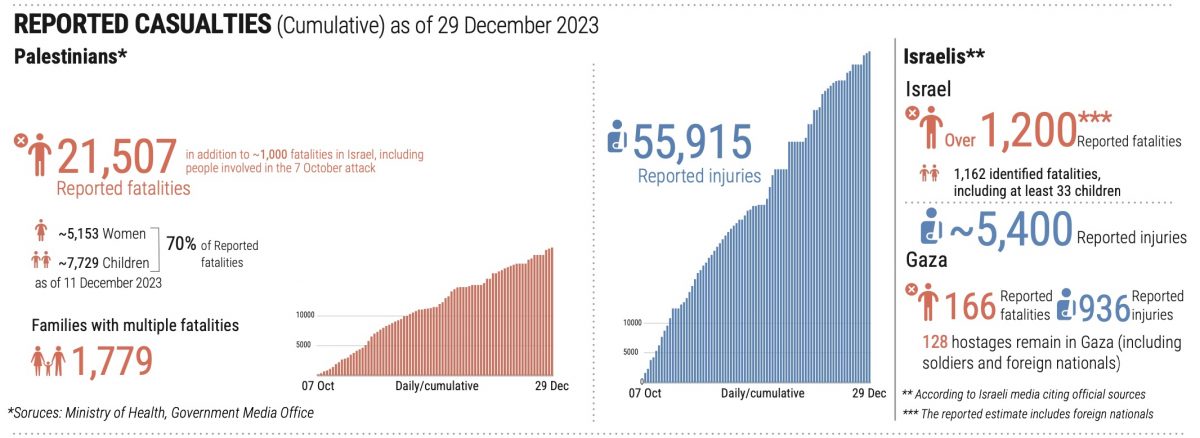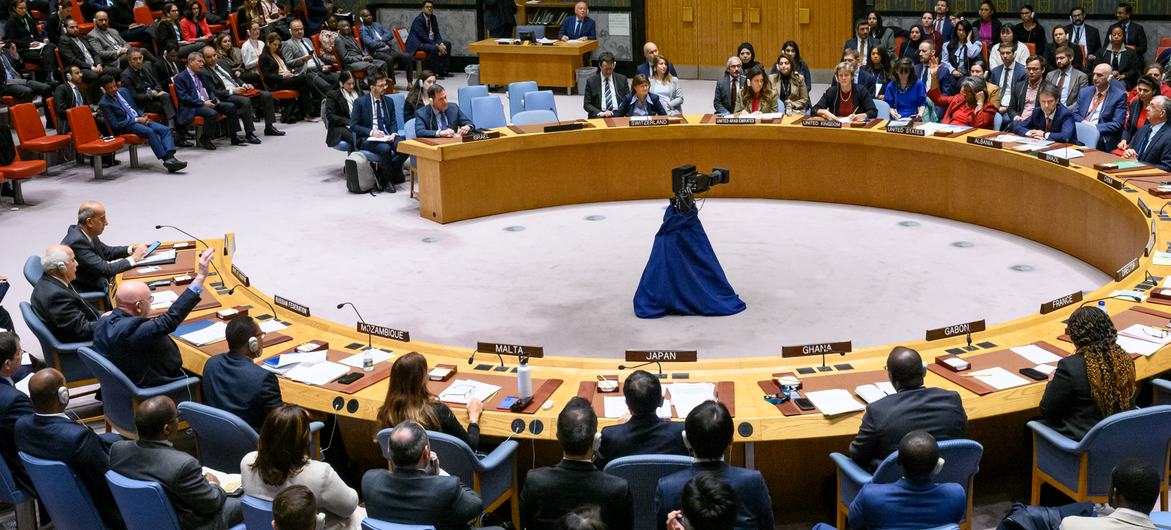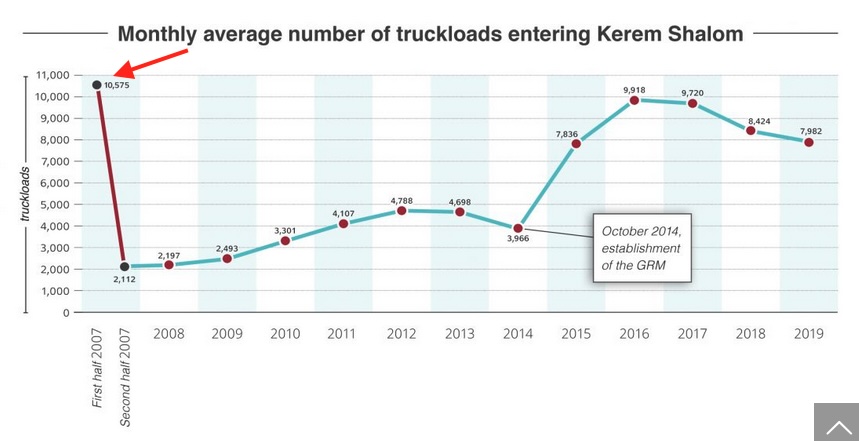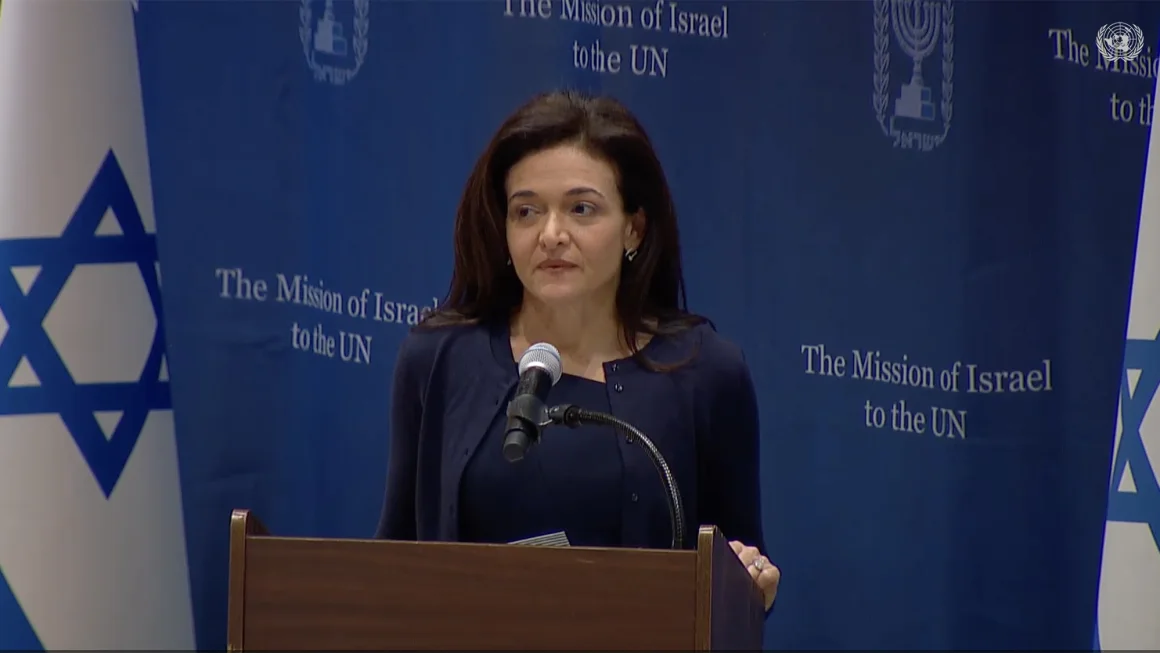(The above charts are taken from UN-OCHA’s summary report of December 29, on the casualties in the Gaza-Israel crisis. The following essay was first distributed in my newsletter series for Just World Ed.)
The humanitarian crisis in Gaza of course should stay top of mind, but I’ve always been very wary of attempts to divorce intense humanitarian crises from the very real political factors that so often, as in this case, underlie them. The intense crisis that Gaza’s 2.3 million people are suffering is absolutely not the result of a “natural” disaster, but the result of very deliberate policies– political projects– pursued by the leaders on both the Israeli and Palestinian (Hamas-led) sides, as well as those pursued by influential allies including, on the Israeli side, primarily the United States.
Hence, the ending/resolution of the crisis requires political decisions, not just “humanitarian” action. (And as has been clear all along even the attainment of humanitarian goals in this crisis, such as the release of hostages/prisoners or the delivery of aid, requires clear political decisionmaking by many of the involved parties.)
Continue reading “The politics of ending Gaza’s misery”





